Aquaphor for Tattoos: Should You Use It?
08 December, 2022Your new tattoo needs a lot of love and care to heal properly. Your skin’s a little traumatized, and your tattoo is an open wound for the first few weeks.
Aquaphor is commonly used as a tattoo aftercare product. It may work well for most people, but it’s probably not the best thing to use. Your skin needs a little help, and you can choose a product that can provide that help.
What Is Aquaphor?
Aquaphor is a protective skin ointment made of something called petrolatum, which is derived from petroleum. Petroleum is the same thing used to make things like gasoline and diesel fuel.
Before you freak out, petrolatum is a highly refined byproduct. It’s a little weird to think about where it came from, but it’s recognized as safe for use.
There are several different varieties of Aquaphor. When most people talk about Aquaphor, they’re talking about the ointment that comes in a tube similar to a toothpaste tube. They also make other moisturizers, salves, and lip care products.
Aquaphor also contains mineral oil, glycerin, and skin conditioning ingredients like lanolin and panthenol. Heads up to vegans: lanolin comes from sheep’s wool, which means that Aquaphor isn’t a vegan product.
If you’re a vegan with a new tattoo, skip to the end. You may want something else.
What Does Aquaphor Do?
Aquaphor works by creating a barrier over the skin to seal in moisture. Aquaphor bills itself as a product designed to protect skin, relieve dry or cracked skin, and soothe skin with minor cuts, scrapes, or wounds.
If there’s some kind of discomfort or damage to your skin, you slather Aquaphor on it. The Aquaphor traps moisture and keeps bacteria out, which helps the wound heal.
Most people use Aquaphor for dried, cracked heels, ankles, hands, and lips. It’s also a popular protectant for burned or blistered skin sensitive to the environment. It’s thick enough to protect raw skin from the shock of cold temperatures or wind.
Is Aquaphor Good for Tattoos?
Aquaphor is commonly touted as a tattoo aftercare staple. Most people get the recommendation to use Aquaphor from their tattoo artist. Aquaphor is designed to get the job done, it’s cheap, and it’s easily accessible.
Many people use Aquaphor for tattoos, and it isn’t always the wrong choice. It just doesn’t do much to provide a healing tattoo with what it needs. Your healing skin needs more than a barrier with some skin conditioning ingredients.
There’s some speculation that petrolatum-based products might be harmful to new tattoos. They won’t cause complications with the healing process, but they can impact the appearance of tattoos. In some cases, petrolatum and mineral oil may bind with the ink in a fresh tattoo, pulling a little bit of it out.
It’s normal for a tattoo to lose a little bit of ink during the healing process when the body sends plasma fluid to the wound. The plasma might carry away a small amount of ink as it drains; this usually doesn’t cause a problem.
You may be in trouble when you combine the natural effects of plasma with the minor ink-pulling capacity of petrolatum and mineral oil. This can cause a tattoo to fade prematurely.
There hasn’t been an official study on how much ink (if any) Aquaphor can remove or fade from a tattoo. In the interest of fairness, plenty of tattoo artists claim that they’ve never experienced ink loss in their clients that use Aquaphor. Take it with a grain of salt, but it’s worth considering.
What Does Skin Need To Heal?
Your body is trying its best to heal up your tattooed skin, but it needs your help. Open wounds are vulnerable to infection. Dry, scabby tattoos can lose ink and definition. Dehydrated and flaky skin feels dry and uncomfortable.
Listen to your skin when it’s begging for intervention. Give it what it needs to heal.
Moisture
Moisture and wounds have a complicated relationship. Some types of moisture introduce bacteria to a wound, making it worse. A protective moisture barrier on a freshly sanitized wound will have the opposite effect.
Many wounds heal better when wet because dehydration can work against the body’s natural healing processes. But your skin needs more than just water for moisture. Getting it too wet in the shower is not the best idea.
You need a protective barrier to seal in your skin’s natural moisture and prevent it from escaping. Ingredients like naturally derived oils and glycerin are heavy enough that they don’t completely absorb into the skin. They’ll sit on the top and cover your tattoo like a natural barrier.
Antimicrobial and Antibacterial Ingredients
One of the biggest risks you deal with when you have an open wound is infection. If your skin is broken, it’s vulnerable to bacteria and microbes that can cause serious problems.
Infection can spread from an open wound into other parts of your body. It’s a big deal, and you need to be really mindful of hygiene when you have a new tattoo.
You shouldn’t use harsh antibacterial or antimicrobial ingredients on a new tattoo. Rubbing alcohol and peroxide can be extremely damaging to healing skin and can wreck your tattoo.
Gentle antimicrobial ingredients can keep germs in check without destroying your new tattoo. Bisabolol, which is a derivative of the German chamomile flower, has natural microbe fighting abilities and naturally soothing properties.
Vitamins
Collagen is the most common protein throughout the body, and it’s one of the main building blocks of skin. Your body needs to make collagen to repair damaged tissue like skin, tendons, and muscles. To make collagen, you need to eat protein and ingest plenty of vitamins.
One of the most important building blocks for collagen is vitamin C. Your tattoo could use a little bit of vitamin C while it’s healing up. Vitamin A helps to stimulate the growth of new healthy skin cells, which is also important while trying to heal.
Panthenol, also known as vitamin B12, is a building block for healthy red blood cells. It also conditions and fortifies your skin and hair when applied topically.
It’s important to both eat these vitamins and use them topically. If you don’t eat a balanced diet, consider taking a multivitamin while your body is working to heal. It has a job to do, and it’s your job to fuel it up for all that hard work.
Healthy Fats
Healthy fats nourish healing skin, lock in moisture, and improve skin texture. Naturally-derived oils like argan oil and sweet almond oil will serve that purpose. They work to hydrate your skin deeply. If you regularly use healthy fats to moisturize your tattoo, the deep quenching nourishment from the oils will make the colors in your tattoo appear more vibrant.
What Should I Use Instead of Aquaphor?
You should use something that contains a wide array of beneficial ingredients rather than something that does little more than protect the skin. Protection is important, but it takes a lot more than that for a tattoo to heal perfectly.
Mad Rabbit’s tattoo soothing gel is formulated with active botanicals, skin-healthy oils, and vitamins that work to soothe and restore your skin. You can use it to help heal tattoos, microblading, skin peels, or as a post-waxing skin-soothing treatment.
It nourishes just as much as it protects. While protecting the fresh and raw skin, it allows for proper airflow so as not to suffocate the healing wound. The goal is to leave your skin healthier than before you got your tattoo.
In Conclusion: Take Care of Your Tattoo
Your aftercare products and routines will determine how well your tattoo turns out. You can get an incredible tattoo, but if you do a really crappy job of taking care of it, it may look like garbage in a few weeks (sorry).
You’ll probably feel upset that you spent all that money and time for nothing, and your tattoo artist will feel like you vandalized their work. The moral of the story: choose the right products.
Mad Rabbit’s Tattoo Aftercare Starter Pack contains everything you need to help your tattoo heal and keep it protected. No, it’s not Aquaphor. It’s something much better.
The kit contains our soothing gel and our broad spectrum SPF 30 tattoo sunscreen to protect your tattoo from the harmful effects of the sun’s UV rays. Use our tattoo balm to nourish and moisturize your tattoo after it fully heals.
Sources:
Try risk-free & save with the Essential Sets
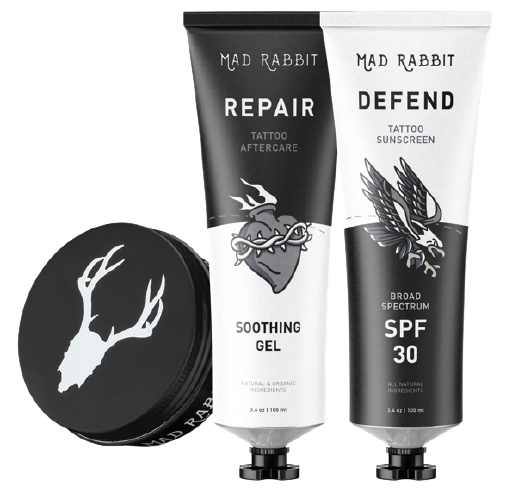
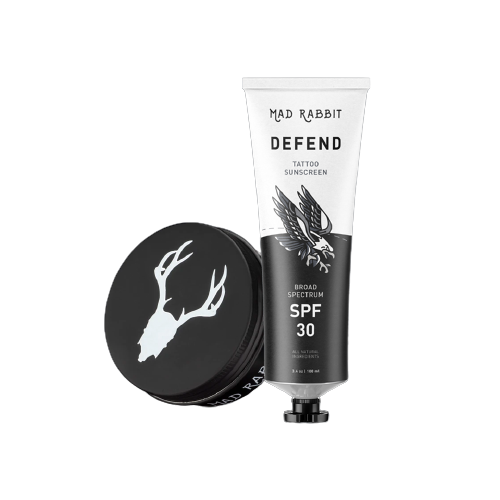
Daily Defense Set
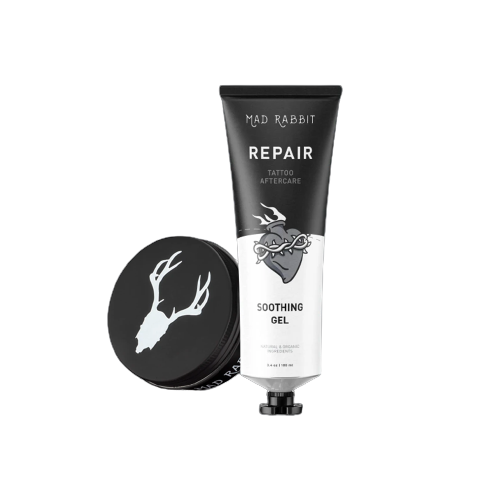


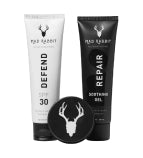
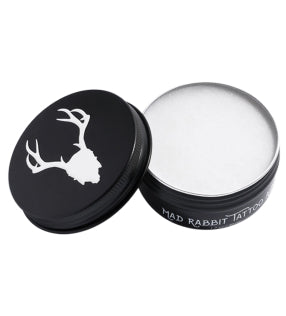
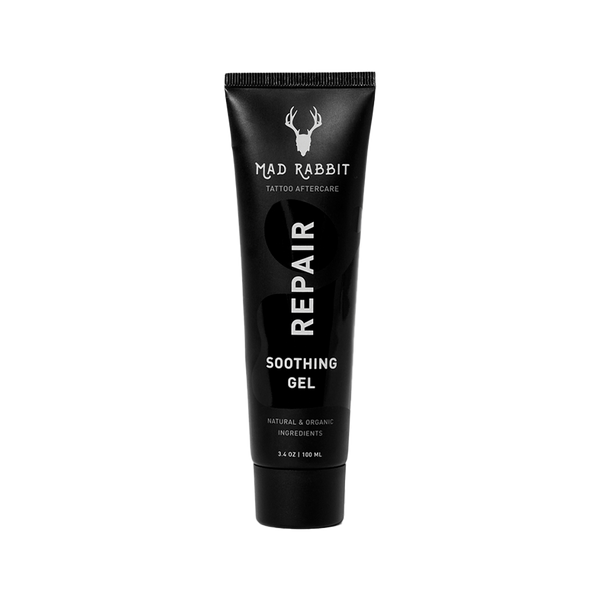

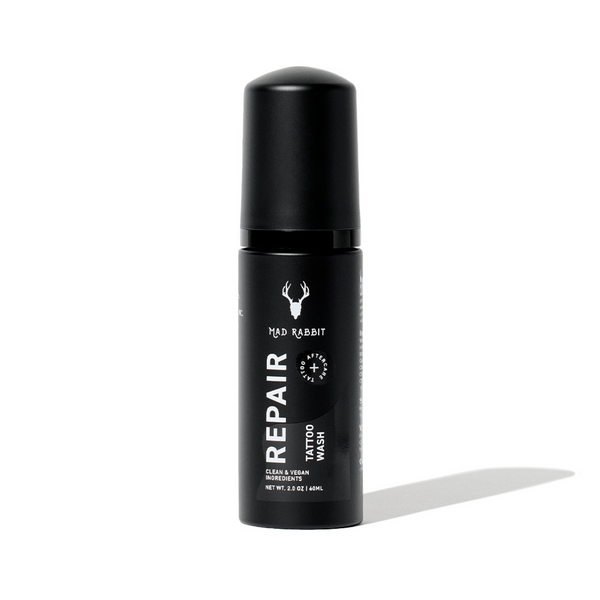
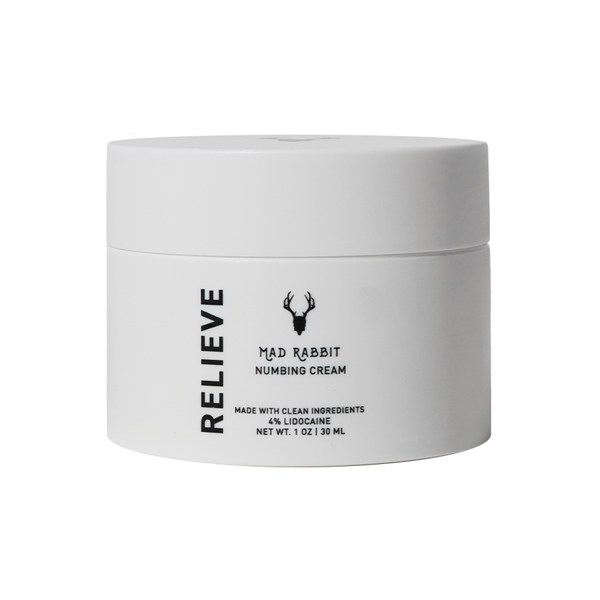
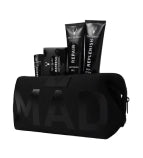
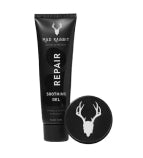
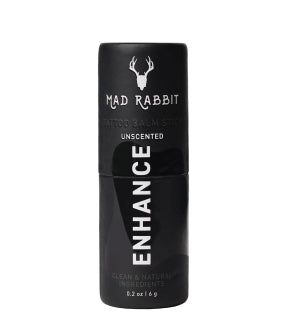
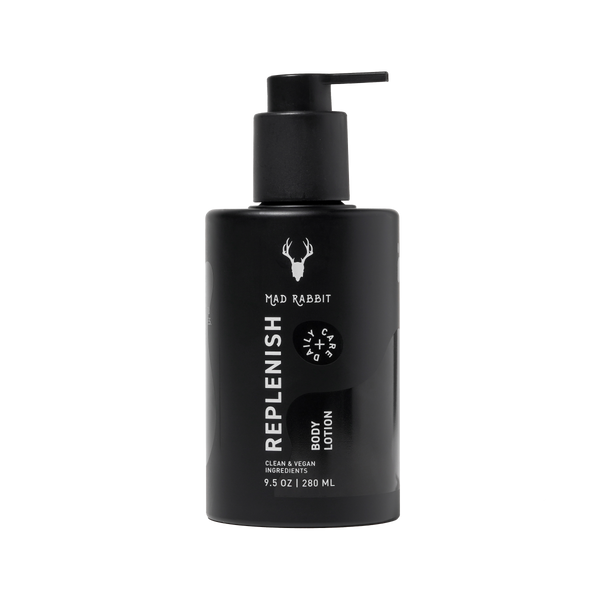
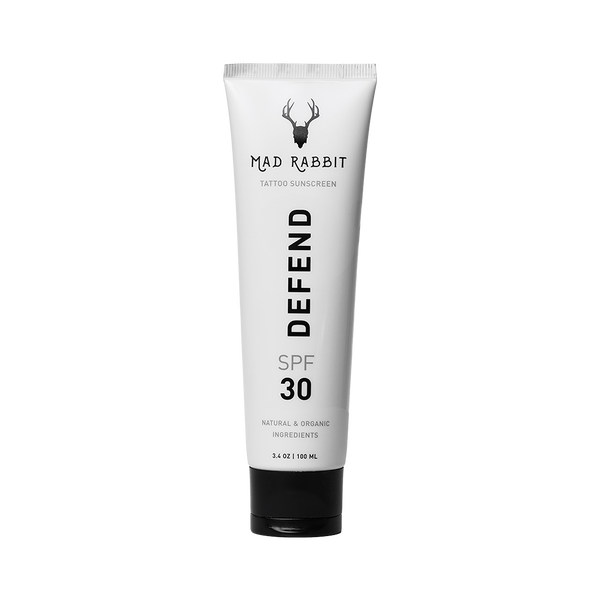
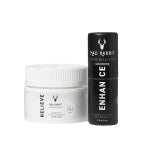
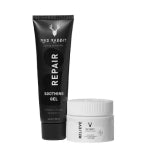
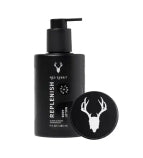
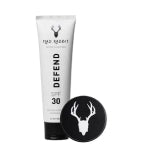
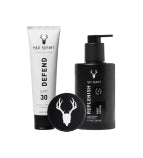
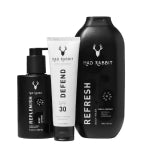
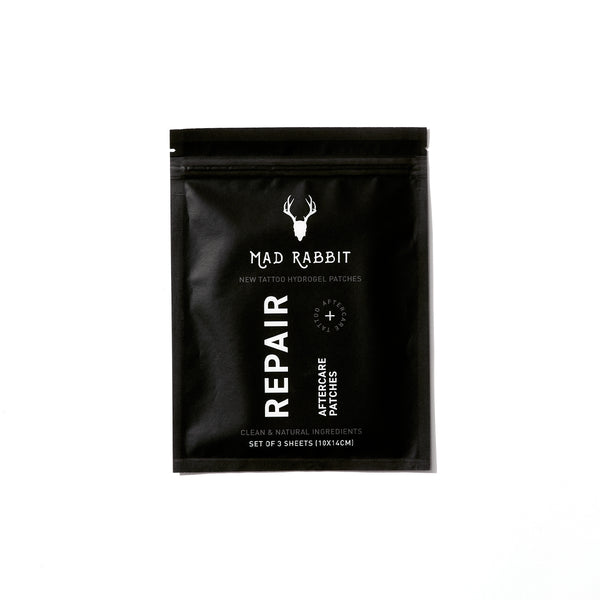
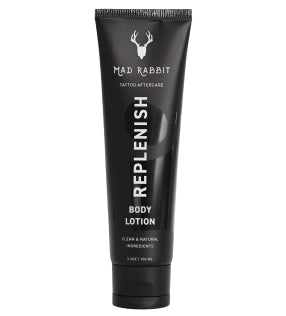
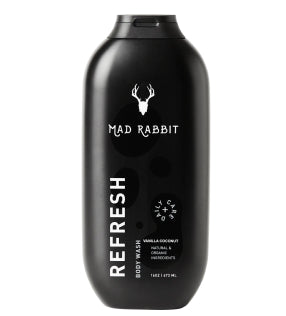
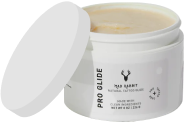



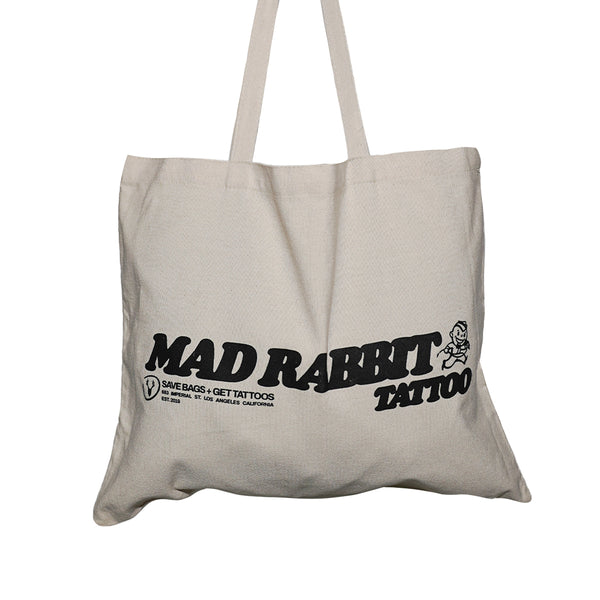

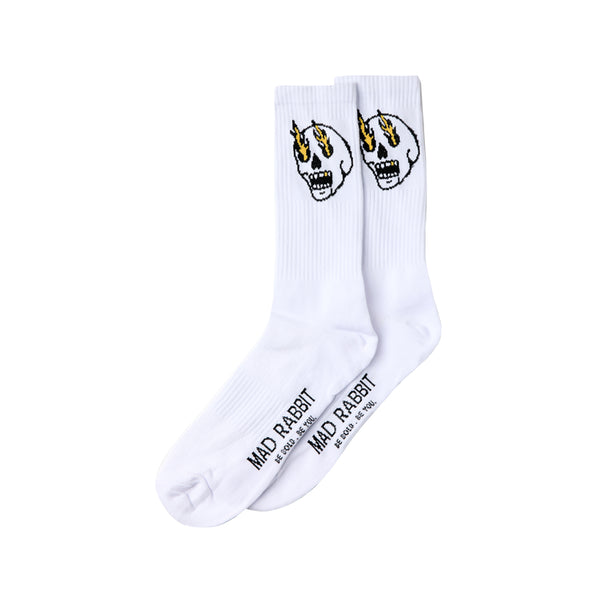
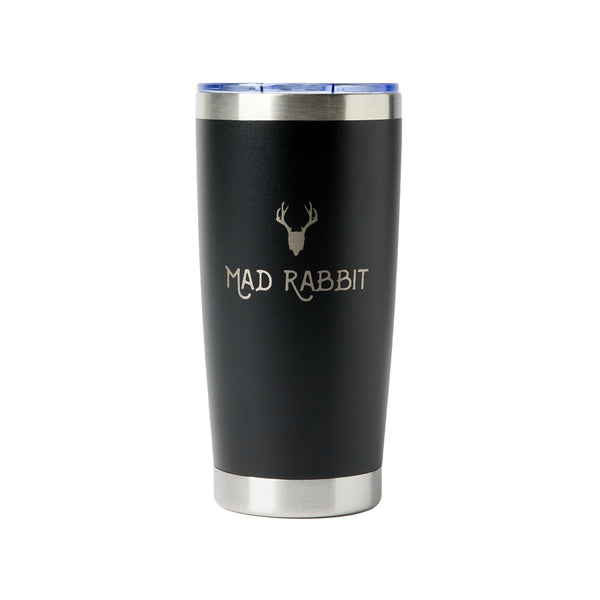

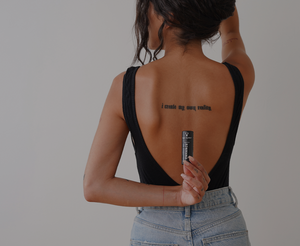
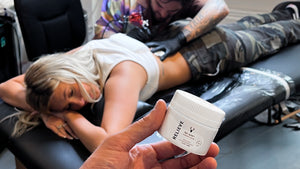
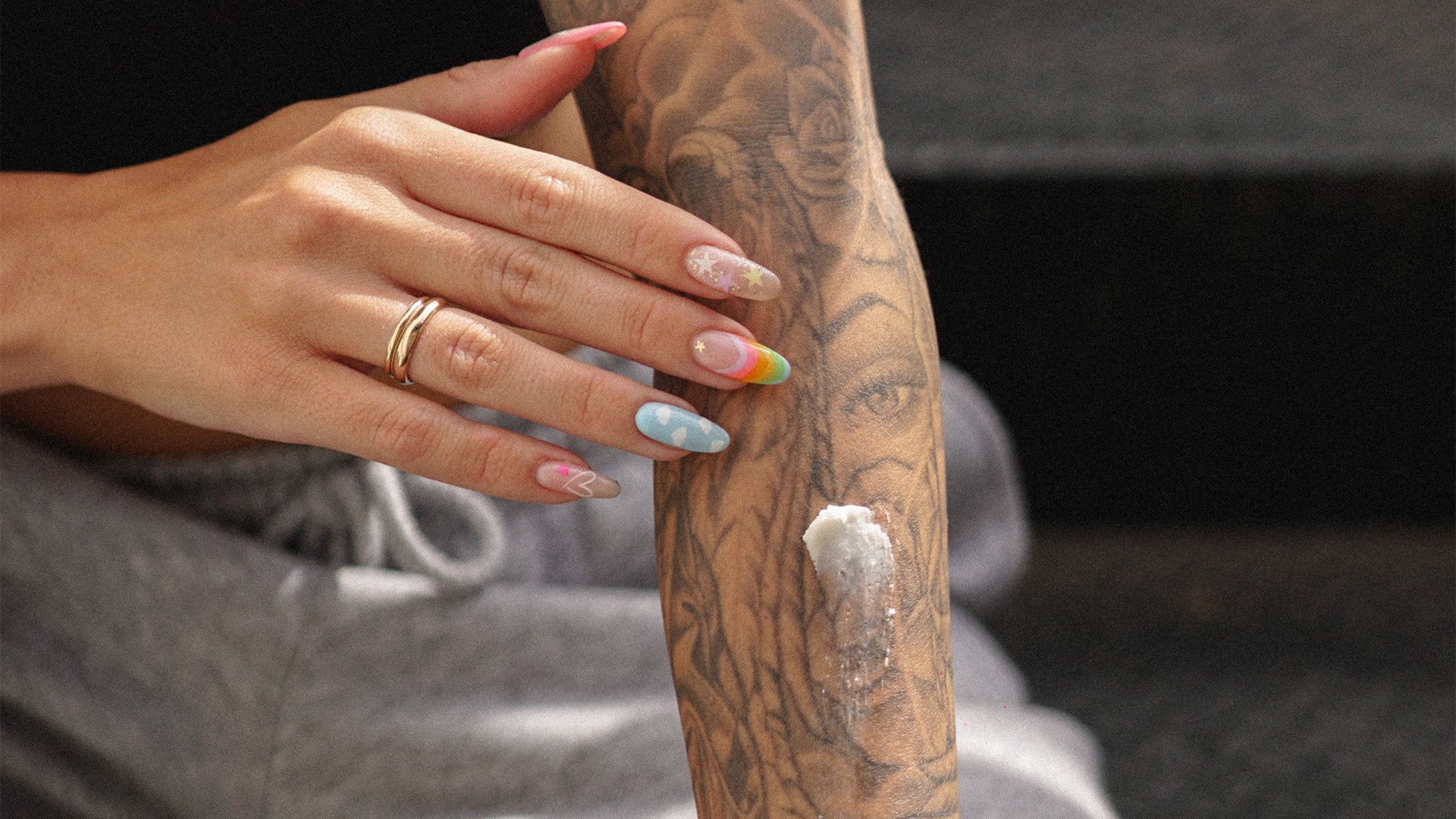
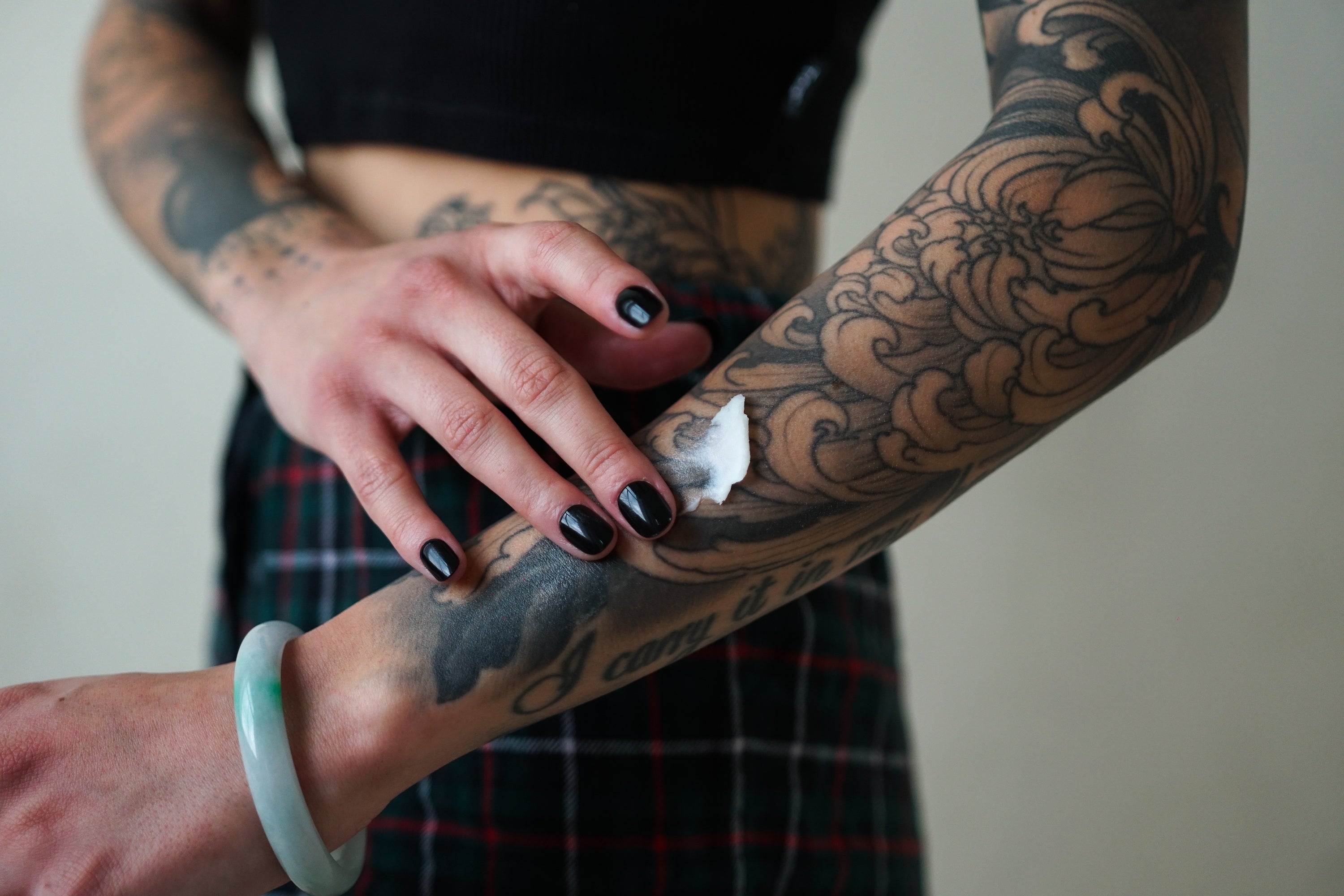
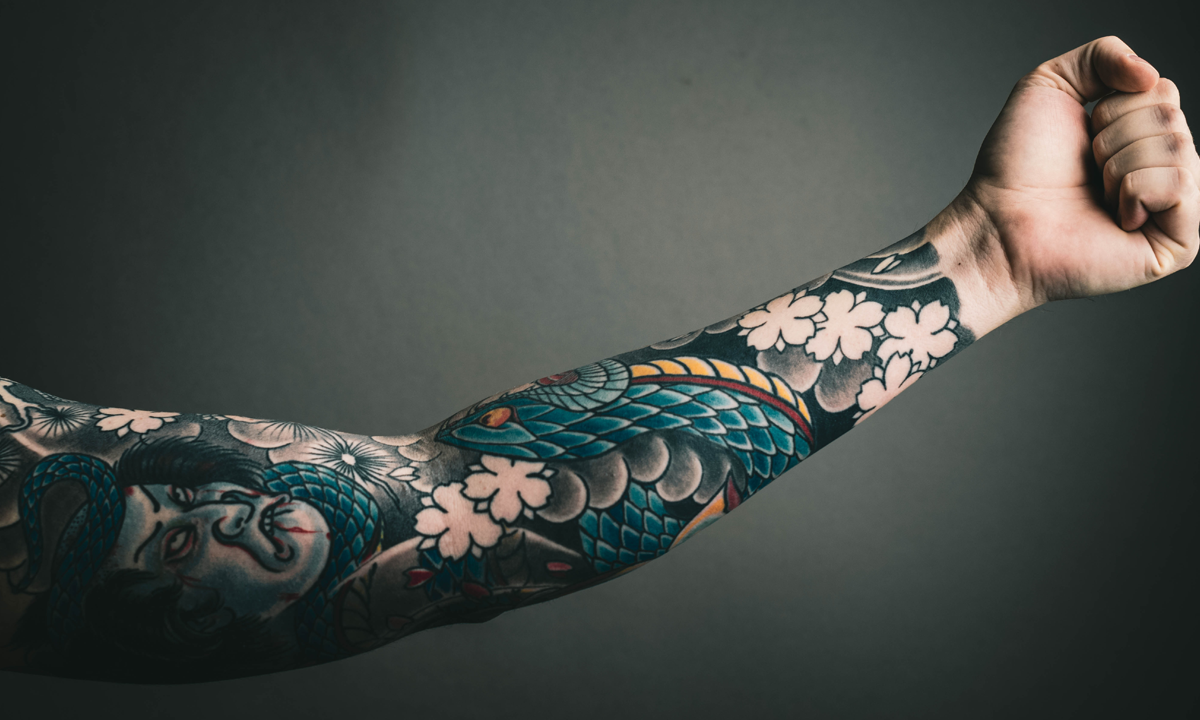
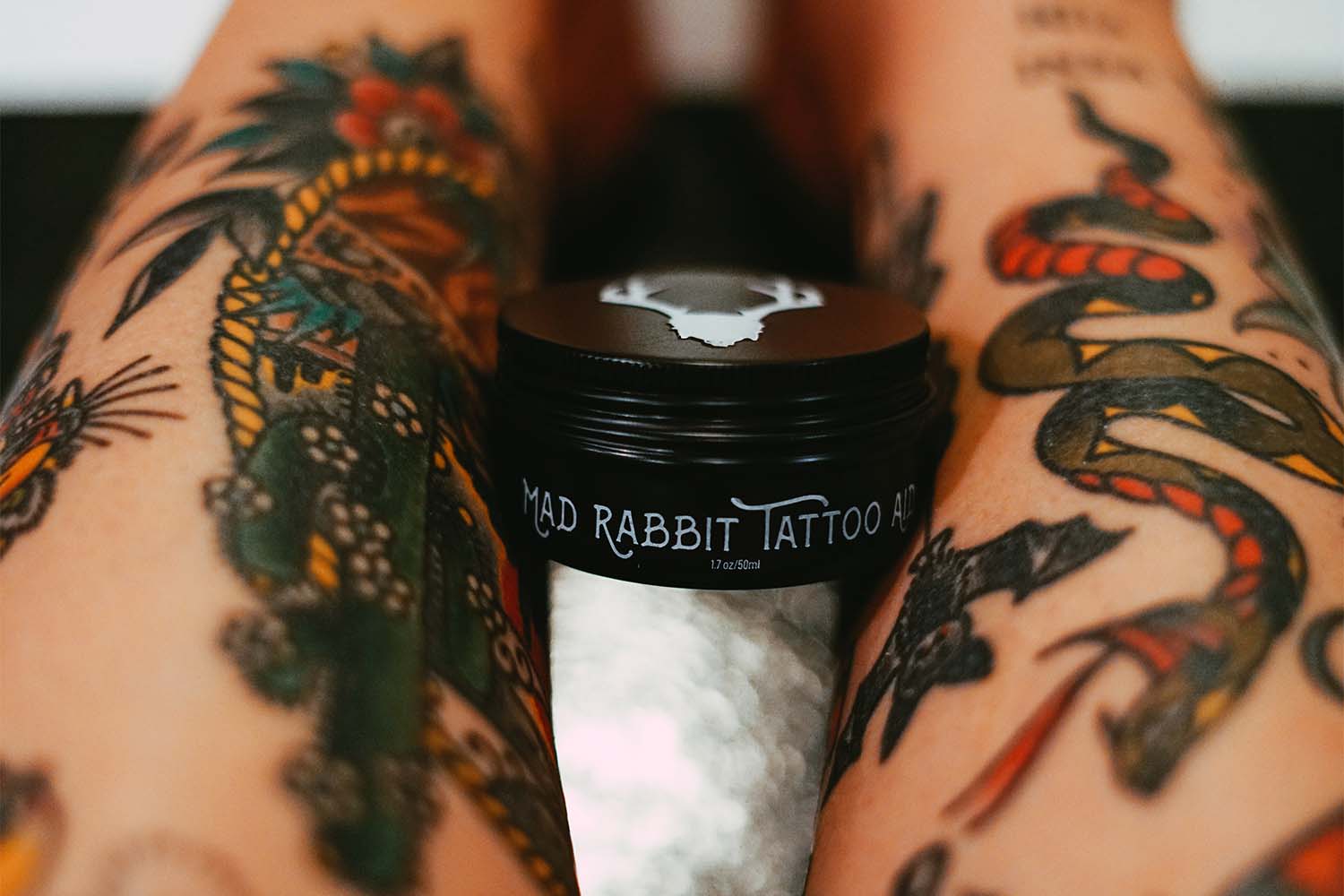
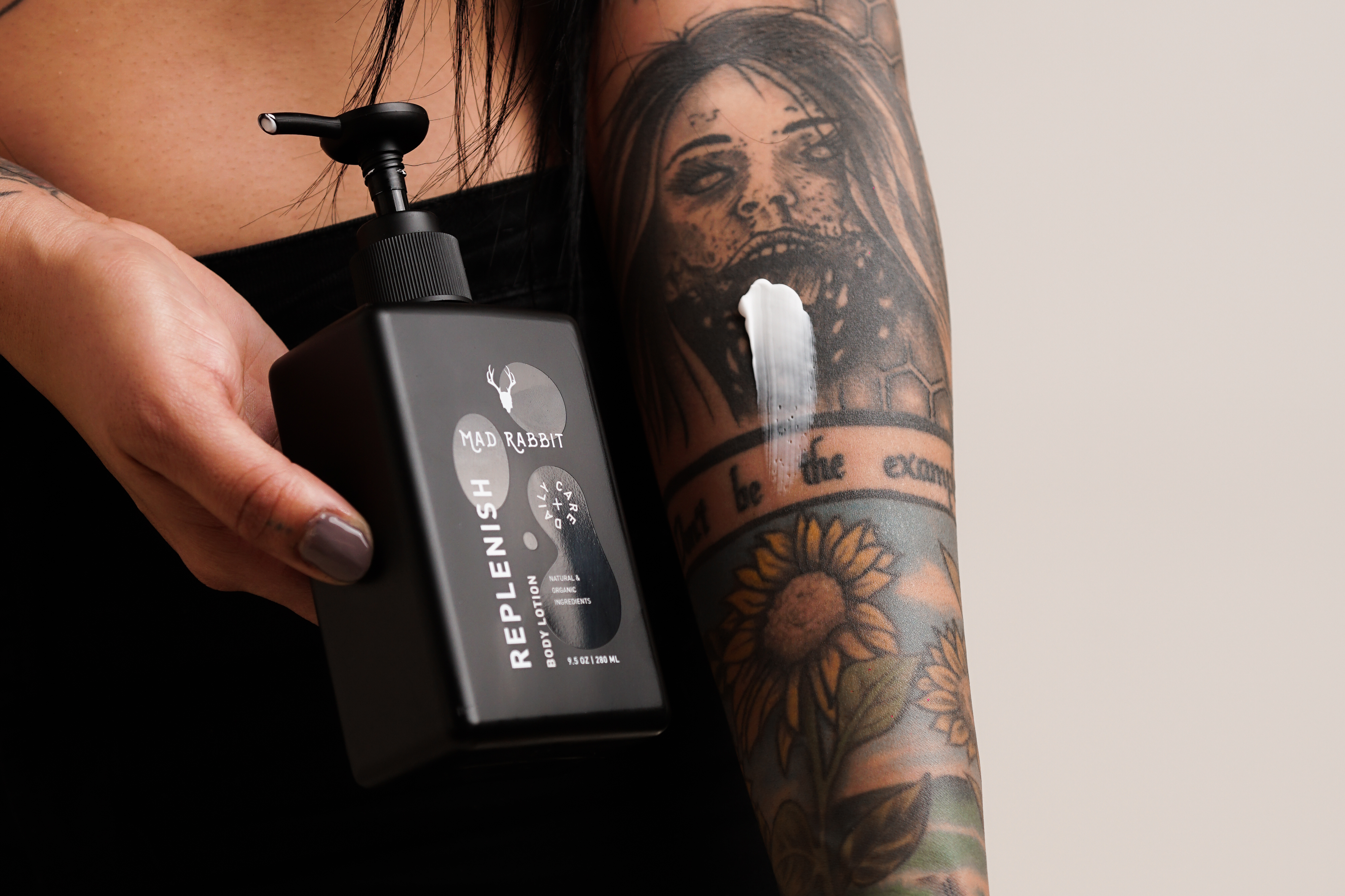
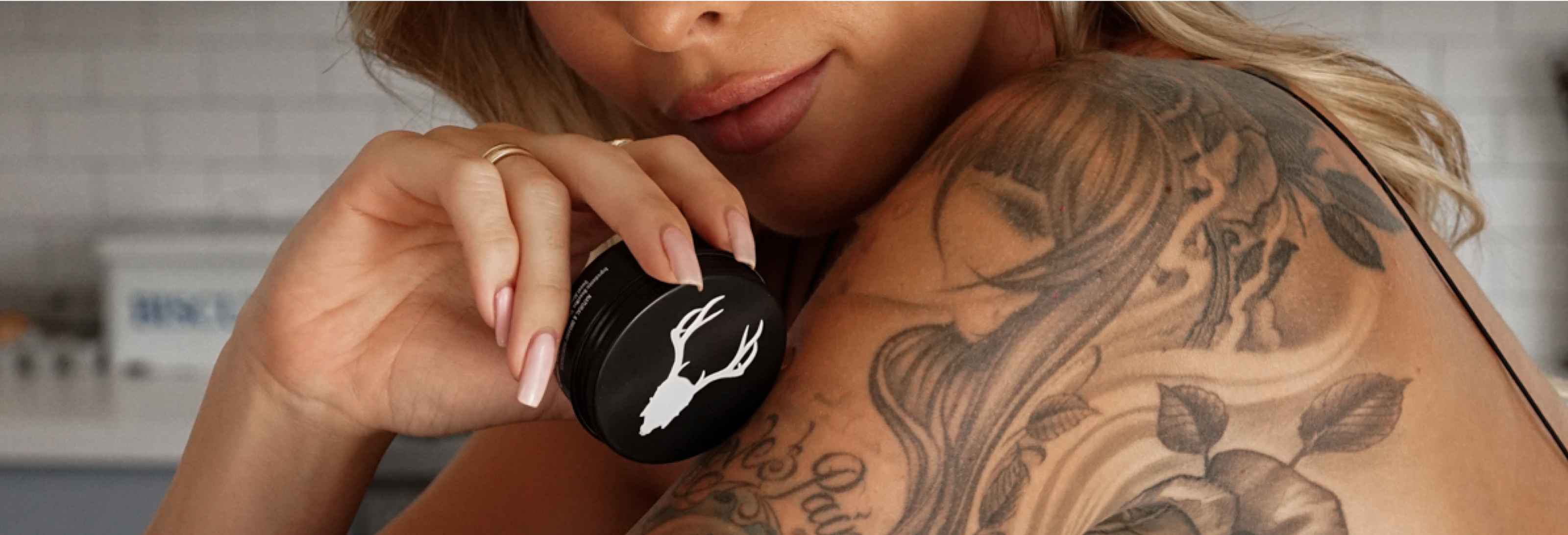
Join the discussion